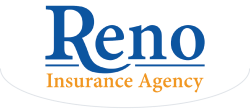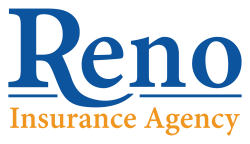Commercial general liability insurance protects your business against liability claims for bodily injury and property damage arising out of premises, operations, products, completed operations, advertising, and personal injury liability. That is a pretty long list! Think of it as insurance coverage for what could go wrong in operating your business. This includes not only your actions as the business owner but also the actions of your employees while working on your behalf.
 One of the most important coverages that is often overlooked in general liability is the cost to defend you and your business. You might be 100% in the right, however, you still have to show up to court with an attorney to defend yourself. This is paid for by the insurance company and is typically paid in addition to the liability limits of the policy. This means the million-dollar general liability policy you purchase also comes with legal defense coverage. Even if you think the operations of your business are low risk, you can still find yourself in a position where you are being sued and have to hire an attorney to defend yourself.
One of the most important coverages that is often overlooked in general liability is the cost to defend you and your business. You might be 100% in the right, however, you still have to show up to court with an attorney to defend yourself. This is paid for by the insurance company and is typically paid in addition to the liability limits of the policy. This means the million-dollar general liability policy you purchase also comes with legal defense coverage. Even if you think the operations of your business are low risk, you can still find yourself in a position where you are being sued and have to hire an attorney to defend yourself.
What Does General Liability Cover?
Commercial General Liability (CGL) insurance is a fundamental type of insurance coverage that provides protection for businesses against a wide range of risks. It's designed to help cover the costs associated with legal claims and lawsuits brought against your business by third parties. Here's what commercial general liability insurance typically covers:
- Bodily Injury: CGL insurance covers medical expenses, legal fees, and compensation for injuries to third parties (such as customers, visitors, or vendors) caused by your business operations or premises. For example, if a customer slips and falls in your store, CGL would help cover their medical bills and your legal defense costs if they sue.
- Property Damage: It covers the cost of repairing or replacing property belonging to others that your business damages or destroys. This could include damage caused by your employees or operations, such as accidentally damaging a client's computer while providing IT services.
- Personal and Advertising Injury: CGL insurance can cover claims related to personal and advertising injuries, such as defamation, slander, copyright infringement, or invasion of privacy in your business's advertising or promotional activities.
- Legal Defense Costs: CGL policies typically cover the costs of defending your business in lawsuits, including attorney fees, court costs, and settlement or judgment expenses. This coverage is crucial even if a lawsuit is groundless, as legal defense costs can be substantial.
- Products and Completed Operations: CGL insurance can cover claims related to products your business manufactures, sells, or distributes (product liability) and services you provide (completed operations liability). For example, if a customer is injured by a defective product your company produced, CGL would provide coverage.
- Contractual Liability: Some CGL policies include coverage for certain liabilities assumed under contracts. This can be important if your business signs agreements that require you to take on additional liability.
- Premises Liability: This aspect of CGL insurance covers accidents or injuries that occur on your business premises, such as a customer slipping on a wet floor in your store.
- Additional Coverages: CGL policies may include additional coverages or endorsements for specific risks or industries. For example, you can add coverage for liquor liability if your business serves alcohol or coverage for damage caused by pollution.
It's important to note that commercial general liability insurance has limits, deductibles, and may not cover certain types of claims, such as intentional acts or employee injuries (covered separately by workers' compensation insurance). To ensure your business is adequately protected, call Reno Insurance and we can help you customize a policy based on your specific industry, risks, and needs.
What Does General Liability Cost?
No two businesses are alike and no two exposures are alike. General liability insurance is priced based on the size of your organization and operations. Depending on your type of business, it is typically rated based on your payroll or gross receipts. That means a small carpentry operation with two employees is not going to pay the same as a large general contractor. Knowing this cost allows you to bid work at a profit and make informed business decisions. We like to educate our clients on their options and the costs associated with those options so they can make informed business decisions.
Tips for Avoiding Large Premium Audits
Are you a business owner and want to avoid a large premium audit bill? If so, here is some information to help:
- If you’re having a better year than you anticipated and are experiencing increased sales or are hiring additional staff, let us know. We can adjust your payroll or sales estimates to better match your actual payroll or sales.
- Be sure to obtain certificates of insurance from your subcontractors and have copies on hand for the auditor to review.
- Keep in mind that those not on the payroll (individuals paid on a 1099 basis or in cash) which do not have a certificate of insurance, will be picked up as employees.
- Understand that clerical employees must work in an area physically separated from the business operations. They will not be considered clerical if any work takes place in the operating area of the business.
Please check with our office to see if you should expect a premium audit and when it will be completed.



